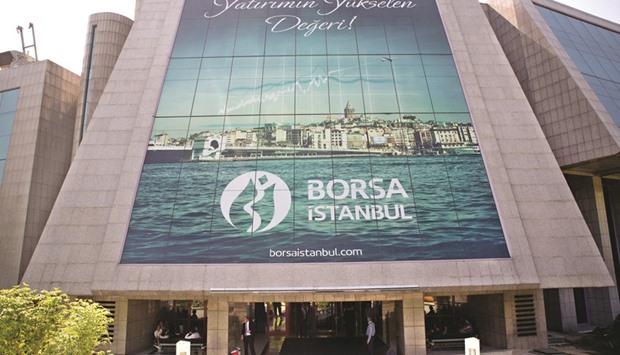A company selling soft drinks in war-ravaged Syria and Iraq, and a property developer with links to Turkey’s ruling party are among the equities attracting foreign money managers after a $27bn stock market rout.
The UK unit of GAM Holding said it’s looking to buy more shares in drinks bottler Coca-Cola Icecek because the lira’s slump following a botched coup last week is good for profits as the company makes nearly half of sales abroad.
Blackfriars Asset Management turned overweight Turkish stocks in some funds this week, after spotting opportunities so cheap they are “no-brainers,” according to money manager Anastasia Levashova.
“Everyone is too emotional,” said London-based Levashova, who bought shares in state lender Turkiye Halk Bankasi and homebuilder Emlak Konut Gayrimenkul Yatirim Ortakligi, part owned by the government housing agency, as they slid at least 15% in Istanbul since Friday. Before a faction of the military tried to topple the government on July 15, Blackfriars was “massively underweight,” she said.
Turkish equity valuations fell to their cheapest in seven years following the biggest selloff worldwide last week, tempting some asset managers to start looking for businesses more resilient to instability within the country, such as food retailers and exporters. Investors have poured almost $14mn into a US exchange-traded fund tracking Turkish shares since Tuesday.
Bond investors are also picking up opportunities in the country. Ogeday Topcular, who helps oversee $300mn in fixed-income assets as managing partner at Ram Capital in Geneva, said he is adding small positions in dollar debt of Akbank, Turkiye Is Bankasi and Yapi ve Kredi Bankasi, whose bonds have all fallen below face value since the crisis started.
This bargain hunting hasn’t yet turned into a stampede. President Recep Tayyip Erdogan’s attempts to turn the once-ceremonial presidency into an office with real executive clout was unnerving investors even before the coup attempt.
“We sold all Turkish holdings from our global emerging markets strategy about two years ago because of the autocratic direction of the Turkish government, the extended domestic credit cycle and the lack of central bank independence,” said Rob Marshall-Lee, London-based head of emerging-markets equities investment at Newton Investment Management, which manages £51.8bn ($68.5bn).
GAM’s bonds desk is moving out of Turkey and reducing holdings of local government notes and the lira, according to Paul McNamara, who oversees $4.5bn in emerging-market debt.
The currency has suffered the worst losses worldwide this week, pushing it to record lows approaching 3.10 per dollar.
The Borsa Istanbul 100 Index, Turkey’s benchmark equity gauge, traded 0.9% higher at 72,214.13 as of 3:36 a.m. in Istanbul on Friday, heading for the first gain since the coup. The country’s 10-year debt snapped a five-day decline as the yield fell 26 basis points to 9.99%. The lira traded 0.7% higher at 3.0474 per dollar.
For a story on the latest developments in Turkey, click here
While GAM offloaded some shares immediately after the coup, it has since started looking for a re-entry point on companies such as Coca-Cola Icecek, which fell 17% this week. That pushed its valuation against expected earnings to a four-month low of 19 times, compared with a multiple of 21 for emerging market consumer companies.
The company will probably triple full-year profit in 2016, according to the average forecast of 22 analysts polled by Bloomberg.
“I’ll be looking to add to that one into weakness,” said Tim Love, London-based money manager at GAM, which oversees $118bn. “I wouldn’t be keen on selling anything at this stage. The question is how much you buy and when.”

The main entrance to the Borsa Istanbul, the stock exchange, is seen in Istanbul. Turkish equity valuations fell to their cheapest in seven years following the biggest selloff worldwide last week.
